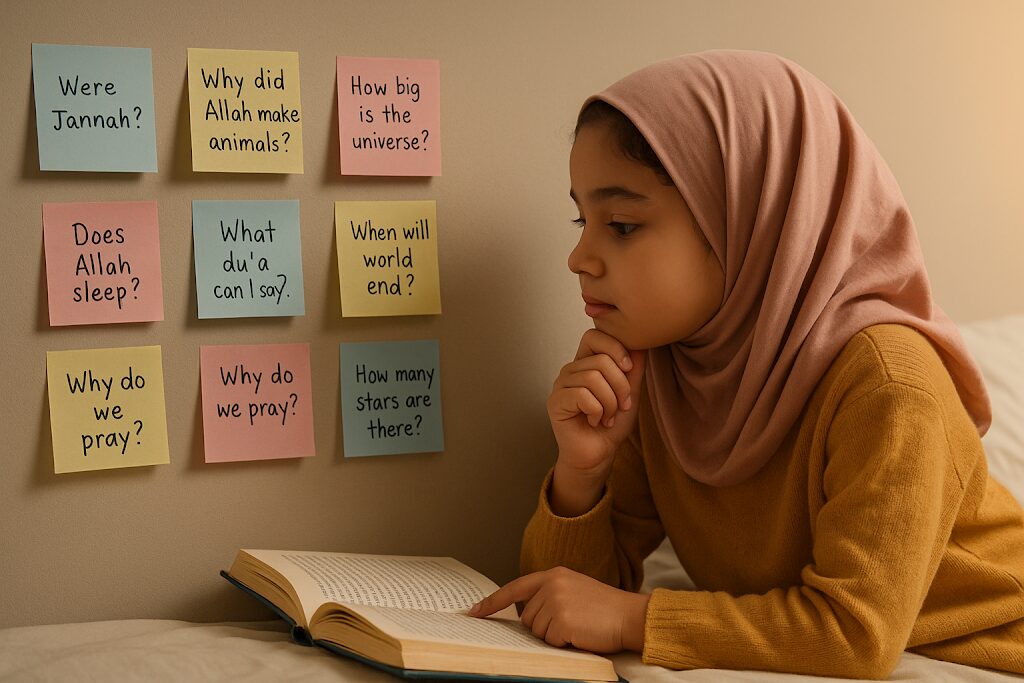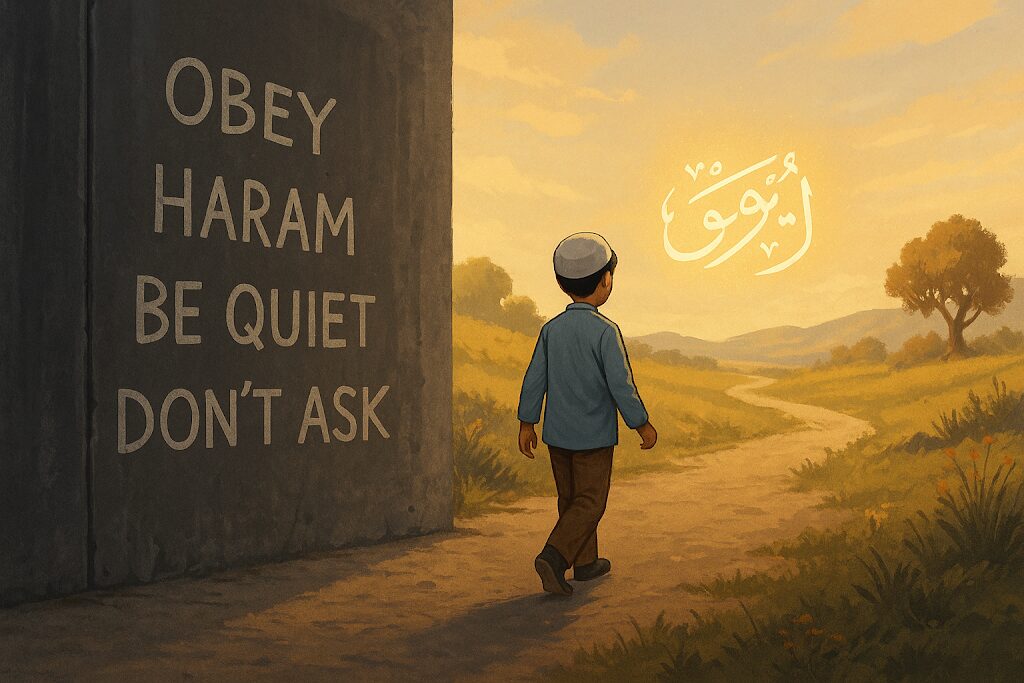Summer is full of open time, open skies, and — if you’re not careful — open-ended boredom.
It’s also a golden opportunity.
Not for more rules.
Not for drilling information.
But for something softer, deeper, and longer lasting:
Curiosity.
Because if your child becomes curious about Islam — truly curious —
they’ll explore it on their own,
ask questions on their own,
and build a relationship with God that isn’t dependent on you always initiating.
So how do we spark that kind of curiosity?
Here are simple, flexible ways you can plant the seed — without ever sounding like a sermon.
1. Take a “Signs of Allah” Walk
Go outside.
That’s it. No worksheets. No long du’a lists.
Just walk and observe.
Ask:
“What does this remind you of in the Qur’an?”
“Why do you think Allah made clouds like this?”
“Do you think animals remember Allah too?”
Then share a verse like:
“And on the earth are signs for those who have certainty.” (Surah Adh-Dhariyat 51:20)
You’re not giving a lesson — you’re building awareness.
That’s curiosity in action.
2. Create a “Question of the Week” Board
At the start of each week, let your child write or decorate a big question:
Why did Allah make us?
Where is Jannah?
Why do we fast?
How does Allah hear everyone?
Then spend the week wondering together.
Look up answers. Ask grandparents. Read stories that touch the theme.
Let the search become part of the memory.
3. Tell Stories That Plant Questions (Not Just Answers)
Kids don’t need lectures.
They need stories that make them think.
That’s why at Mayous, our Islamic storybooks are designed to gently embed Qur’anic values inside real stories with:
Emotionally relatable characters
Moral tension and curiosity
A soft verse woven into the journey
Because when stories reflect your child’s inner world — they naturally start asking more.
4. Let Them Teach You What They Know
Reversal is powerful.
Instead of always being the one to explain, ask your child:
“Can you teach me something you know about Islam?”
“What’s your favorite ayah — and why?”
“If you could write a story with a lesson in it, what would it be?”
Let them take the lead.
When kids are invited to own what they know, they get curious about what they don’t know — and that’s where motivation begins.
5. Use Art, Science, and Play as Gateways to Faith
Don’t separate Islam from “school subjects.”
Blend them.
Let science spark Qur’an discussions (e.g., rain, animals, stars)
Let painting lead to a discussion about divine beauty
Let a trip to the beach become a conversation about tides, time, and trust in Allah
Faith isn’t limited to salah time.
Show them it’s woven into everything.
Curiosity Is the Beginning of Every Real Relationship
And faith is no different.
When you stop trying to push — and start planting wonder — your child begins to explore on their own.
They ask. They reflect.
And inshaAllah, they build a connection to Allah that feels personal, peaceful, and strong.
📚 Want help starting those conversations?
Read a free Mayous storybook — and let your child’s curiosity take root.

